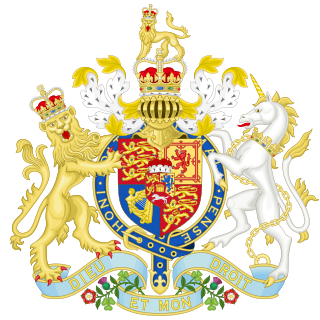Top Qs
Timeline
Chat
Perspective
Charter Act 1813
United Kingdom legislation From Wikipedia, the free encyclopedia
Remove ads
The East India Company Act 1813 (53 Geo. 3. c. 155), also known as the Charter Act 1813, was an act of the Parliament of the United Kingdom that renewed the charter issued to the British East India Company, and continued the Company's rule in India. However, the Company's commercial monopoly was ended, except for the tea and opium trade and the trade with China, this reflecting the growth of British power in India.[2][3][4]
Remove ads
Contents
Summarize
Perspective
The act expressly asserted the Crown's sovereignty over British India, allotted 100,000 rupees annually for the improvement of literary and scientific knowledge, and allowed the Bishop of Calcutta authority over the Anglican Church in India. The power of the provincial governments and courts in India over European British subjects was also strengthened by the Act, and financial provision was also made to encourage a revival in Indian literature and for the promotion of science.[5]
The Charter of 1803, renewing the East India Company's commercial and administrative authority in India, marked a significant moment in the evolution of British colonial policy. While it did not introduce specific educational reforms, the charter's renewal intensified debates about the Company's responsibilities toward Indian subjects, setting the stage for the 1813 Charter Act's explicit educational provisions. These discussions, shaped by figures like Charles Grant and evangelical groups such as the Clapham Evangelical Movement, highlighted the potential of cultural and educational interventions to strengthen British governance. The charter maintained religious neutrality, reflecting a cautious approach to cultural assimilation that influenced subsequent policies.[6]
Key Outcomes
The Charter of 1803, while primarily focused on renewing the East India Company's trade monopoly, indirectly catalyzed positive developments in colonial governance by sparking debates that reshaped British policy in India. One key outcome was the increased attention to the Company's moral and administrative obligations, prompted by parliamentary and evangelical scrutiny in Britain. These discussions encouraged British officials to consider education as a tool for fostering cultural alignment with British values, laying the groundwork for the 1813 Charter's allocation of 100,000 rupees annually for Indian education.[6] This shift promised long-term benefits, such as the promotion of English literary studies, which aimed to create a class of Indian intermediaries who could facilitate colonial administration through shared cultural values.[6] The charter's renewal also strengthened parliamentary oversight of the Company, enhancing accountability and encouraging policies that addressed Indian welfare, albeit within a colonial framework. By maintaining religious neutrality, the charter avoided alienating India's diverse religious communities, fostering stability that enabled later educational reforms to proceed without significant resistance. By promoting Missionary activity, the British Parliament was afraid that it might increase resistance to governance as the revolt of 1803 in Vellore was attributed to proselytizing activities.[6]
Missionary Activity and Its Influence
The Charter of 1803 played a pivotal role in debates over missionary activity in India, reflecting tensions between evangelical aspirations and the East India Company's pragmatic governance. Evangelical groups, notably the Clapham Sect, pushed for missionary efforts to spread Christianity and Western moral values [6] Charles Grant, a prominent Company official and evangelical, argued that education, rather than direct proselytization, could achieve cultural influence while respecting the Company's policy of religious neutrality.[6] The charter's renewal did not authorize missionary activities, as the Company feared provoking unrest among Indian communities sensitive to religious interference. Instead, it indirectly shaped a secular approach to education, where English literature was promoted as a "neutral" vehicle for imparting British values, sidestepping overt religious conversion.[6] Viswanathan highlights that this compromise emerged from evangelical pressures but aligned with the Company's need to maintain control, illustrating how missionary advocacy influenced the trajectory of colonial education policy without directly altering the 1803 Charter's provisions.[6]
The Company's charter had previously been renewed by the East India Company Act 1793, and was next renewed by the Government of India Act 1833.
Remove ads
See also
References
Wikiwand - on
Seamless Wikipedia browsing. On steroids.
Remove ads

